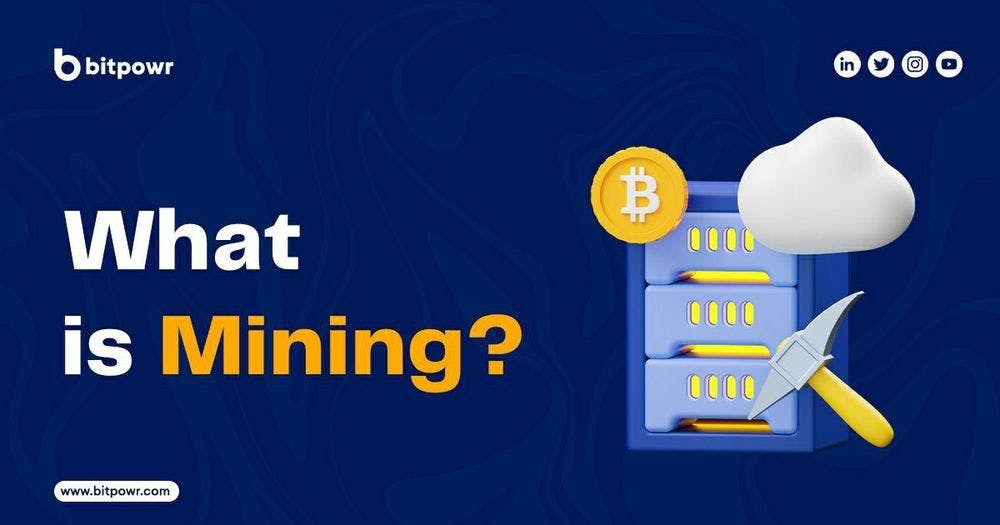Mining refers to the process of verifying transactions on a blockchain network and generating new digital coins. However, there is a caveat. It requires a vast network of computers spread across the globe to verify and secure them to the blockchain ledger.
As a reward for contributing to their processing power, computers on the network earn coins. It is a continuous series of events: the miners secure and maintain the blockchain, the blockchain awards coins which are then released into circulation, and the coins provide miners with incentives to maintain it. Let’s take a quick look at a few other critical basic details about mining.
Why does mining matter?
In addition to releasing new coins, mining plays a crucial role in Bitcoin’s (and other cryptocurrencies’) security. The process of mining involves verifying and securing the blockchain, and this enables digital currencies to operate as fast peer-to-peer decentralized networks with the absence of third parties.
Also, in exchange for mining and contributing to their computing network, the miner who solves the problem is rewarded.
How Bitcoin Mining Works
Bitcoin is a decentralized cryptocurrency that stores transaction data on a distributed ledger known as a blockchain.
Bitcoin mining involves verifying bitcoin transactions and recording them on the distributed ledger ( i.e, blockchain) . Blockchain transactions are verified by bitcoin users and it is open to users with mining hardware and internet access.
To successfully add a block, bitcoin miners must compete to solve a difficult mathematical puzzle that requires specialized computers and enormous amounts of electricity. To finalize the mining process, miners must derive the correct or the closest answer to the question.
The process involves predicting the proper 64-digit hexadecimal number (hash) known as proof of work. Miners predict the target hash by making as many guesses as they can at random, which demands a significant amount of computing power. Also the level of mining difficulty intensifies as more miners join the network.
Bitcoin miners can obtain bitcoins through one of three ways:
- Virtually mining new bitcoins
- Trading bitcoins for goods and services
- Purchasing bitcoins on the exchange market.
In the early days of Bitcoin’s launch, individuals could compete for blocks with a regular personal computer and discover their own path but this is no longer possible. Mining bitcoin has become more competitive over time and along with the technicalities required to partake in it.
Currently, miners invest in powerful computer equipment such as graphics processing units (GPUs) and application-specific integrated circuits (ASICs). These can range from $500 to tens of thousands of dollars. Electricity consumption by ASICs has been criticized by environmentalists and the cost of these specialized computers can limit the miners’ profitability.
To cobble together mining operations at a low cost, some miners purchase individual graphics cards. The majority of Bitcoin mining hardware today is made up of ASIC machines that are specifically designed to mine bitcoins. For this to be profitable, the coins earned must be more valuable than the cost of mining them.
Rewards are paid out to miners who solve complex hashing puzzles first, and the probability of a miner finding the solution depends on the network’s total mining power. If a miner successfully adds a block to the blockchain, they will be rewarded with 6.25 bitcoins. Every four years, or every 210,000 blocks, the incentive value is lowered in half. Bitcoin was trading around $20,000 in September 2022, making 6.25 bitcoins worth $125,000.
Final Words
The role of miners in preserving the integrity of the blockchain cannot be overstated. Mining reduces fraud, improves network security and user confidence. Apart from its importance to the general users on a network, it also serves as another income stream for miners even though it requires considerable resources and technical expertise.




